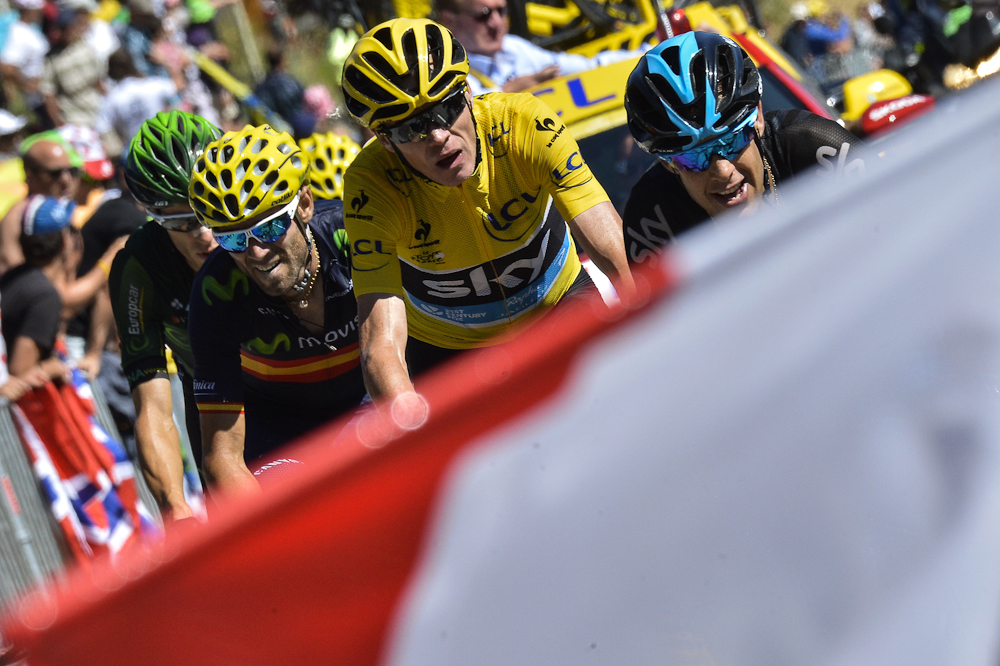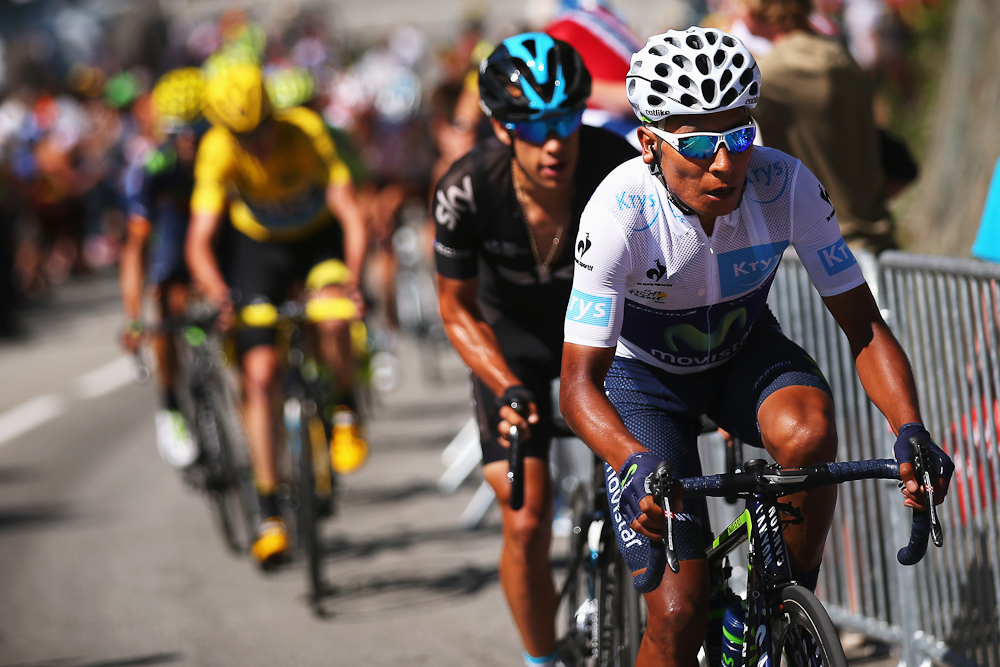UCI test Froome, Contador and Pinot bikes on Alpe d'Huez for mechanical doping
Governing body tests on final climbing stage of the Tour de France


The UCI carried out bike checks on Alpe d’Huez at the Tour de France in their bid to monitor for motorized doping, with stage winner Thibaut Pinot (FDJ) and race leader Chris Froome (Team Sky) among those who had their quota of race bikes checked by commissars at the finish.
In total five riders had their bikes checked atop the climb, including the stage winner, maillot jaune, Alberto Contador (Tinkoff Saxo), Nairo Quintana (Movistar), and Alejandro Valverde (Movistar).
The UCI has recently come in for criticism for the low number of tests they have carried out in the Tour de France. No checks were made during the Pyrenees, while only a handful of stages saw checks throughout the race. The checks are meant to be unannounced, and the UCI recently told Cyclingnews that along with checking frames, wheels were also subject to examination.
“As for wheel checks, we have inspected all wheels on all bikes we have tested. They are checked to ensure that they have been tested and approved in accordance with our technical regulations,” the UCI recently told Cyclingnews.
“We then remove the wheels from the bike and give them a visual check to look for signs of any modifications. The wheels are then checked for balance which would indicate the presence of additional components and finally we check the bearings run smoothly and without resistance which would also indicate the presence of additional unauthorised components.”
So far this year the UCI have carried out mechanical doping tests at several key races including Milan-San Remo, the Giro d’Italia and the Tour de France. They have yet to find anything that represents mechanical doping.
“For years we’ve been taking this seriously by checking bike at races,” a UCI spokesperson told Cyclingnews.
The latest race content, interviews, features, reviews and expert buying guides, direct to your inbox!
“We’ve heard the rumours. The main fact is that we know you can buy such bikes on the market and restoring credibility in the sport is important.
“We know that the technology is available on the market. We’ve been making checks as we don’t want this to enter professional cycling. This was mentioned in the CIRC report but we didn’t wait for the publication of that to confirm it. We’ve been taking this seriously for much longer.”

